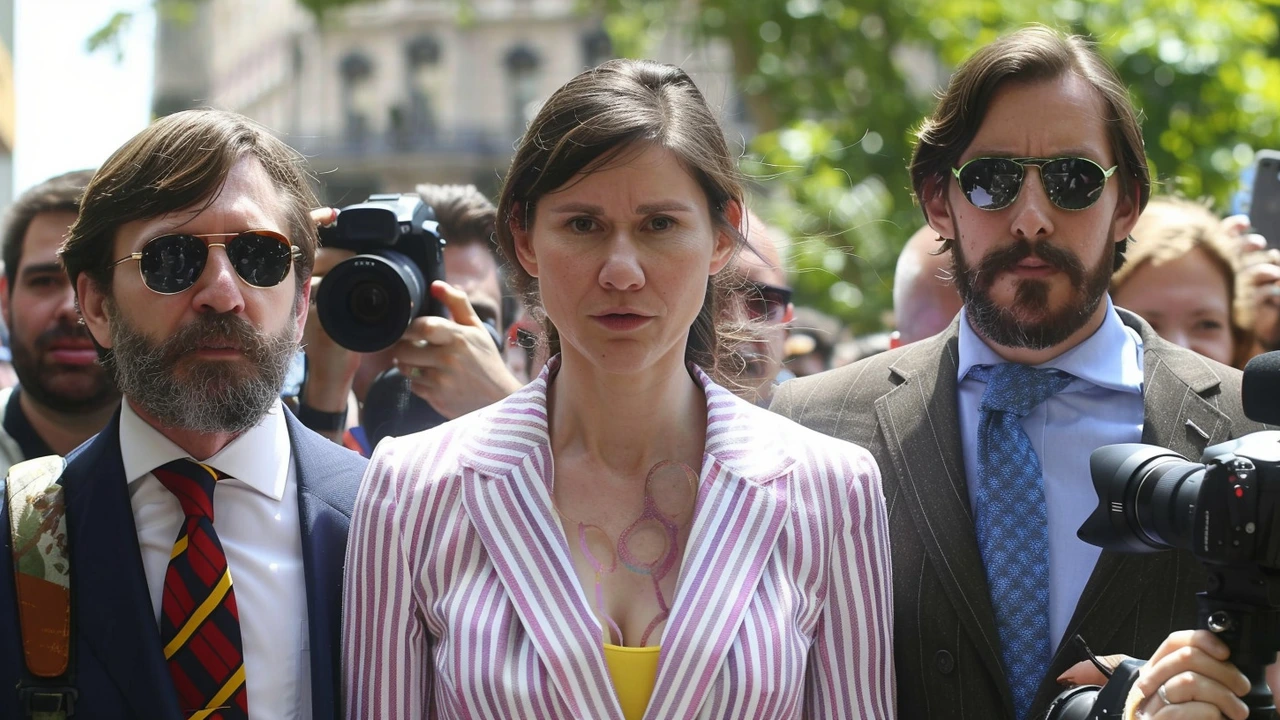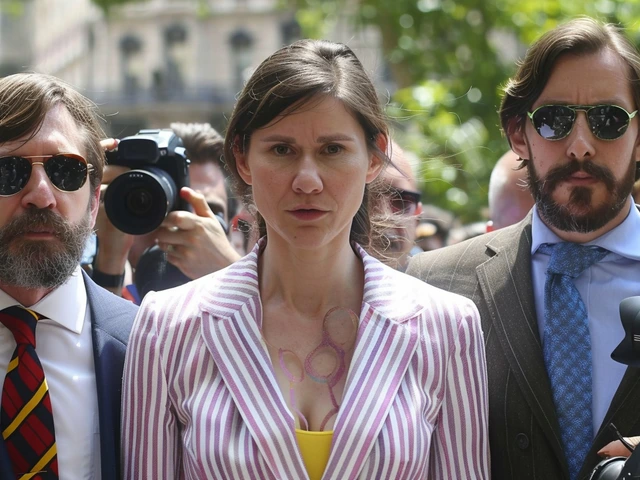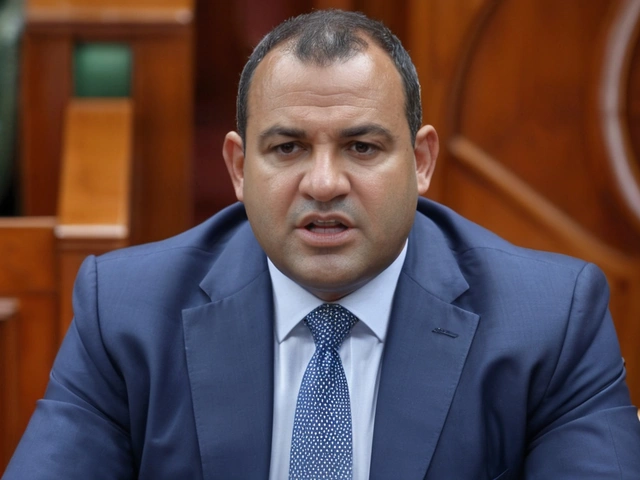Amanda Knox Requests Italian Court to Overturn Slander Charge
Amanda Knox has once again become the focus of international attention as she petitions an Italian court to annul a long-standing slander charge. The American, who was initially convicted of the 2007 murder of her British roommate, Meredith Kercher, asserts that her confession during the investigation was forced by the police. Despite her 2015 acquittal for Kercher's murder, the slander charge has continued to shadow her. Knox's appeal is built on the argument that her statements were coerced through psychological pressure, a claim bolstered by her legal representative, Carlo Dalla Vedova.
Details of the Case
The case began in 2007 when Meredith Kercher was found brutally murdered in the apartment she shared with Amanda Knox in Perugia, Italy. The ensuing investigation quickly turned the spotlight on Knox and her then-boyfriend, Raffaele Sollecito. The prosecution's narrative painted Knox as a key player in a violent escapade that led to Kercher's death. However, the case was riddled with procedural and evidentiary anomalies—from contaminated DNA samples to interrogations conducted in the absence of legal counsel.
As Knox's defense has consistently maintained, it was during these intense interrogation sessions that she was coerced into making a false confession. Knox has described the psychological strain she faced, recounting how Italian police allegedly used high-pressure tactics to extract statements implicating her. This interrogation, according to Knox's defense, was not only unlawful but also fundamentally flawed, rendering any statements obtained from it unreliable.
Legal Maneuverings and Public Perception
Despite her eventual acquittal for the murder in 2015, Knox's legal woes were far from over. The slander charge—which stems from her false accusation of bar owner Diya 'Patrick' Lumumba during the initial investigation—remained unresolved. Carlo Dalla Vedova, Knox's lawyer, contends that his client's false statements were a direct result of coercive police techniques and should, therefore, be nullified. This legal bid to overturn the slander charge is not merely about clearing Knox's name; it is also about scrutinizing and, potentially, reforming the interrogation practices employed by law enforcement.
The public's opinion on Amanda Knox remains deeply divided. While her supporters view her as a wrongfully accused woman who has been through an unimaginable ordeal, critics—including the Kercher family—argue that Knox's actions contributed to the chaos and confusion surrounding the case. To them, the slander charge isn't just a legal footnote; it is a symbol of Knox's alleged involvement in the tangled, tragic events of 2007.

Looking Ahead: Knox's Future and Unresolved Questions
As the Italian court prepares to issue its verdict later this year, Knox is not merely waiting passively. She has announced plans to publish a book detailing her experiences in Italy, from her initial arrest to her ultimate acquittal and beyond. The book is expected to offer a window into her life during the investigation and trial, shedding light on the personal and emotional toll it took on her.
Knox's case has become a landmark in discussions about the Italian justice system and the treatment of foreign nationals within it. The upcoming court ruling on the slander charge will be another pivotal moment, not only for Knox but also for those committed to scrutinizing law enforcement practices. As observers await the court's decision, one thing remains clear: Amanda Knox's quest for justice is far from over.
A Broader Implication
In many ways, Amanda Knox's story is about more than just a single individual's quest for justice. It highlights the complex interplay between legal systems, media narratives, and public opinion. Knox's supporters argue that she has already paid a steep price for a crime she did not commit. They see the slander charge as an enduring injustice, a final vestige of the wrongful accusations that marred her life for nearly a decade.
Yet, for Knox herself, clearing her name of the slander charge is not just about vindication. It is about reclaiming her life and narrative on her own terms. As her story continues to unfold, it serves as a stark reminder of the profound impact that legal battles can have on individual lives. Whether the court sides with Knox and her legal team or upholds the slander charge, the repercussions will resonate far beyond the walls of the courtroom.
Ultimately, Amanda Knox's case is a poignant example of the human capacity for resilience and the enduring quest for truth and justice. As the world watches and waits for the Italian court's decision, Knox's story remains a compelling narrative of struggle, hope, and the unwavering pursuit of justice.






So she’s back again, crying about coercion? Let me guess-she didn’t mean to falsely accuse an innocent man. It’s not like she was the one who named him to police during a panic. People don’t just make up names out of thin air unless they’re trying to deflect.
Coercion? Sure, maybe. But she still chose to say it. And now she wants to rewrite history like it’s a Netflix documentary.
OH MY GOD. THIS IS THE MOST TRAGIC DRAMA SINCE THE O.J. TRIAL.
Imagine being a 20-year-old American girl in Italy, surrounded by strangers who speak a language you barely understand, interrogated for hours without a lawyer, sleep-deprived, and then-BAM-you blurt out something you didn’t mean because you were terrified.
And now? They won’t let her go. Not even after the murder conviction was thrown out. They’re clinging to this SLANDER charge like it’s a trophy. It’s not justice-it’s punishment by bureaucracy. This isn’t about Patrick Lumumba anymore. It’s about Italy refusing to admit it messed up. And Amanda? She’s just the living reminder of their failure.
The irony is delicious: she was coerced into confessing to something she didn’t do, yet the system insists her coerced statement about Lumumba is somehow legally valid.
It’s like saying, ‘We broke your mind, so we’ll use the broken pieces as evidence.’
The Italian justice system didn’t just fail Amanda Knox-it weaponized her trauma. And now, years later, it’s still refusing to clean up its own mess. This isn’t about guilt or innocence anymore. It’s about institutional pride. And pride, as we know, comes before the fall.
Let’s not lose sight of the bigger picture. Amanda was a kid. She was in a foreign country, under immense pressure, and she made a mistake under duress. That doesn’t make her guilty of murder, and it doesn’t make her a liar by nature.
Everyone deserves a fair system. If the police used illegal methods to extract a statement, then that statement shouldn’t stand-no matter who said it.
This isn’t about whether we like her or not. It’s about whether we believe in the rule of law. And if we do, then the court has to side with justice, not pride.
LMAO she’s gonna publish a book?? 😂
Next she’ll start a podcast: "How to Survive Being Wrongly Accused (And Profit From It)"
Meanwhile, the real victim’s family still has to live with the fact that their daughter was murdered. And now we’re supposed to feel bad because Amanda’s getting a little public attention? 🤡
Also, Patrick Lumumba? He lost his business, his reputation, his peace. And now she wants to erase her role in that? Nah. Not buying it.
I’m so tired of this.
Let me just say this: if you were in a foreign country, scared out of your mind, interrogated for 12 hours straight, with no translator, no lawyer, and cops yelling at you to say something-wouldn’t you say anything to make it stop?
She didn’t want to accuse Lumumba. She was broken. And now, years later, they’re still punishing her for being human?
It’s not about the murder anymore. It’s about whether we believe people can be broken by systems. And if we do… then we owe her more than a slap on the wrist with a slander charge. We owe her silence. We owe her peace.
I think we need to separate the emotional narrative from the legal reality.
Yes, the interrogation methods were questionable.
Yes, the DNA evidence was mishandled.
Yes, the media turned her into a villain.
But the slander charge? It’s not about whether she was coerced-it’s about whether she made a false statement that caused real harm to an innocent man.
And even if the coercion is proven, does that automatically erase the consequence?
Maybe the court should dismiss the charge on procedural grounds… but let’s not pretend that the harm didn’t happen.
Justice isn’t always clean. It’s messy. And sometimes, the right thing isn’t the easiest thing.